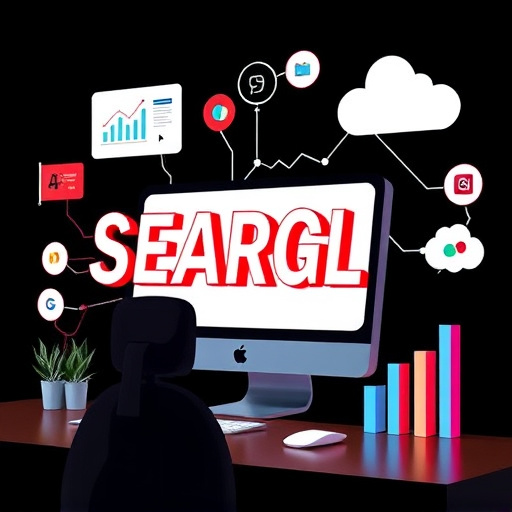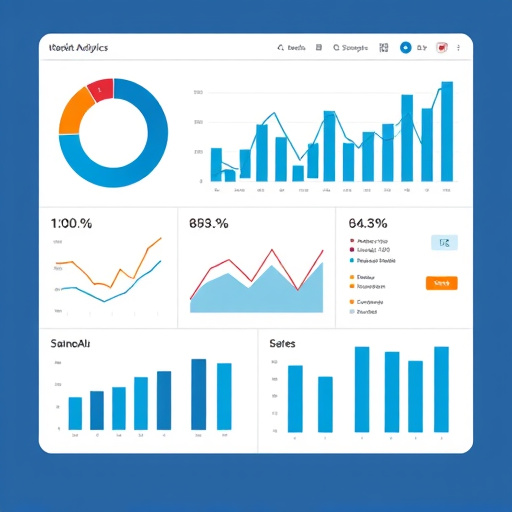Keyword research is essential for online success, especially local businesses aiming to improve their Google search rankings. Tools like Google Keyword Planner, SEMrush, and Ahrefs help identify keywords used by target audiences, allowing businesses to optimize content, design, and meta tags. Focusing on long-tail keywords (specific, less competitive phrases) like "professional web design Dallas" or "web design South Florida" enhances local SEO, attracts a focused audience, and boosts visibility, ultimately driving potential clients to the business. This strategy guides users directly to relevant pages, improving search rankings and user experiences by providing tailored solutions.
Looking to climb to the top of Google search results? This guide reveals proven strategies to significantly improve Google search rankings. From keyword research, understanding the power of long-tail keywords and leveraging tools like Google Keyword Planner for effective term identification, to on-page optimization through compelling meta tags and strategic header tags, we’ll explore actionable techniques. Additionally, discover the importance of off-page strategies, including building high-quality backlinks and harnessing social media’s potential. Implement these tactics to boost your online visibility and drive more traffic to your site.
- Keyword Research: Unlocking the Power of Relevant Terms
- – Understanding the importance of keyword research for search engine optimization (SEO)
- – Identifying long-tail keywords and their impact on rankings
Keyword Research: Unlocking the Power of Relevant Terms

Keyword research is a fundamental step in optimizing your online presence and improving Google search rankings. By identifying relevant keywords and terms that your target audience uses to search for products or services, you can ensure that your website appears in the results when potential customers look for similar offerings. Tools like Google Keyword Planner, SEMrush, and Ahrefs offer valuable insights into search volume, competition, and related keywords, helping businesses uncover powerful terms that drive organic traffic.
Focusing on long-tail keywords, which are typically longer phrases with lower search volumes, can significantly benefit local SEO services. For instance, instead of targeting “web design,” consider “professional web design Dallas.” This specific approach not only attracts a more focused audience but also increases the chances of ranking higher in geographical searches, thereby boosting your online visibility and driving potential clients directly to your doorsteps.
– Understanding the importance of keyword research for search engine optimization (SEO)

Keyword research is a fundamental step in any successful search engine optimization (SEO) strategy. It involves understanding what terms and phrases your target audience uses when searching for products, services, or information related to your business. By identifying relevant keywords, you can optimize your website content, meta tags, and even web design in South Florida to better align with user queries. This ensures that when someone searches for a local service like SEO Fort Lauderdale or “SEO services near me,” your site is more likely to appear in the top results, thereby improving Google search rankings.
Focusing on long-tail keywords—specific phrases that are less competitive but have higher conversion rates—can be particularly effective. These keywords often reflect the intent behind a user’s search and can guide potential customers directly to relevant pages on your website. Incorporating these terms naturally into your content not only helps search engines understand your site’s focus but also enhances the user experience, which is a crucial aspect of both local SEO in Fort Lauderdale and achieving higher rankings on Google Search.
– Identifying long-tail keywords and their impact on rankings

In the realm of search engine optimization (SEO), long-tail keywords play a pivotal role in enhancing your website’s improve Google search rankings. These are more specific and less competitive phrases that users often type into search engines when they have a clear intent behind their search. For instance, instead of targeting “web design,” which is broad and highly competitive, consider targeting location-specific phrases like “web design Arlington” or “web design South Florida.” Such long-tail keywords not only attract a more targeted audience but also signal to Google that your website is relevant to specific local needs. This can significantly boost your site’s rankings for those particular queries.
By incorporating long-tail keywords into your content strategy, you’re essentially providing search engines with valuable context about your business and the services it offers. For example, a web design agency in Dallas can create content that addresses common questions and pain points specific to local businesses, using keywords like “web design Dallas” and related terms. This strategic approach not only improves improve Google search rankings but also fosters better user experiences, as you’re delivering tailored solutions to your target audience’s needs.
In conclusion, improving your Google search rankings requires a strategic approach, with keyword research as a cornerstone. By understanding user intent behind relevant terms, particularly long-tail keywords, you can optimize content effectively. Utilizing these strategies not only boosts visibility but also attracts the right audience, ensuring your website stands out in the digital landscape and achieves higher rankings over time.














